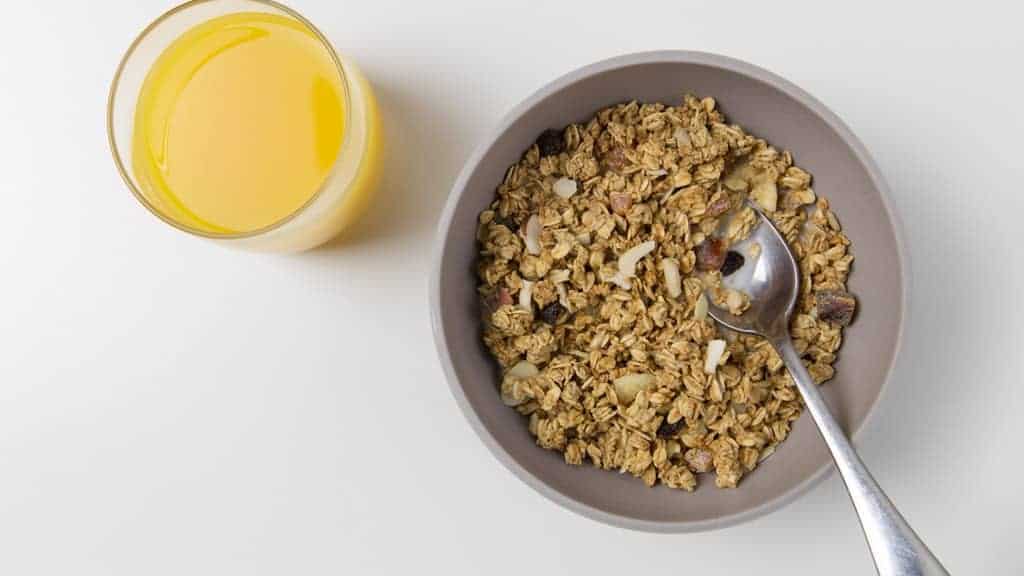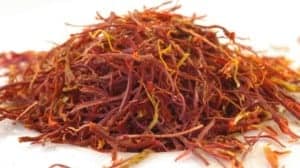We all know that a high fiber diet is a component that helps fight stomach issues, especially constipation. But did you know that it may have many other benefits, including helping with depression and other mental health issues?
Depression and depressive symptoms are experienced by a great many people around the world, and depression is the most common illness across the globe. The idea that the best treatment option for it is so simple and accessible is a great thought.
Fiber is found in many healthy foods, and links have been drawn between it and more positive mental health for years. But what’s the connection? And is it legitimate?
Researchers Reveal How A Diet High In Fiber Can Cure Depression
How High Fiber Can Cure Depression
The idea that a bad diet contributes to reduced positive thinking, worsened mental health, and increased depression risk is far from a new one. Though many mental health issues are exceedingly complex – too complicated for a diet to be the only cause – many experts have posited over the years that nutrition is as crucial to psychiatry as to any other bodily health concern.
The Studies on Depression and a High Fiber Diet
A study entitled “Exploration of the association between dietary fiber intake and depressive symptoms in adults,” conducted by researchers Xu H, Li S, Song X, Li Z, and Zhang D, found that fiber may be beneficial to depression. Their research used data from 2007 – 2014, taken from the National Health and Nutrition Examination Survey.
The data concerned 16,807 adults aged 20 years old and above. Dietary data was collected using two dietary recall interviews, each lasting 24 hours, and depressive symptom data was received with a Patient Health Questionnaire. They then evaluated data from different sources of fiber: cereal, fruits, and vegetables.
The study was able to conclude that the more fiber from any three sources was consumed, the lower the depressive symptoms associated, allowing for better positive thinking.
Dr. Joseph Finch and his team conducted a similar study in the UK. Knowing that they could still not definitively state that improving one’s diet equates to the reduction of depressive and anxious symptoms, they set out to find the answer for sure.
To find the answers, the researchers examined data from a whopping 46,000 individuals. Psychosomatic Medicine, a well-known journal, published the resulting research. They used a wide range of information found on many different electronic databases to look for randomized controlled trials that focused on the relationship between depression, anxiety, and diet.
Sixteen controlled trials were determined to be eligible, and these trials summed up 45,826 people’s information. Researchers then conducted analyses and found that all the possible dietary improvements proved to decrease depressive symptoms, though they did not affect anxiety.
The Study Results
This meant that fat-reducing, weight-loss, nutrient-rich, low-carb, and many different kinds of diets could all help depression. This indicates that severe, specialized, and invasive foods are unnecessary for aiding depressive symptoms.
The results also indicated that improved diet, mixed with exercise, could be a viable treatment for depression. Though it is unknown as of now, if they can be a complete cure, the high-fiber diets show promise in terms of moving towards a diet-based treatment plan for depression.
Foods High In Fiber
1. Avocado
Most fruits are packed with carbohydrates, but avocados are full of positive fats – as well as B vitamins, vitamin C and E, magnesium, and potassium. One hundred grams of avocado has 6.7 grams of fiber.
2. Artichoke
This nutrient-packed vegetable has an impressive 8.6 grams of fiber within every 100 grams. This means that just one artichoke can provide you with a whopping 10.3 grams.
3. Lentils
These low-cost superfoods have 7.9 grams of fiber in every 100 grams of them. Eating one cup of lentils, cooked, provides you with 15.6 grams of fiber, alongside many other nutritional benefits.
4. Chickpeas
Yet another superfood, this legume has lots of proteins and minerals, as well as a healthy dose of fiber. Eat a cup of them cooked to receive 12.5 grams of fiber, as 100 grams of chickpeas has 7.6 grams of the stuff.
5. Popcorn
When it comes to high-fiber snacks, popcorn takes the cake. There are about 14.5 grams of fiber in just 100 grams of popcorn. (Of course, go for air-popped options, not ones slathered in fat.)
6. Kidney Beans
These legumes are very popular for their high protein content and great nutritional value, and there are 6.4 grams of fiber in every 100 grams of them. Eat a cup of them cooked for 11.3 grams of fiber.
7. Oats
Oats are undoubtedly the best kind of grain food that you can eat with all their antioxidants, vitamins, and minerals. They also have something called beta-glucan, which has positive effects on cholesterol and blood sugar. In 100 grams of oats, you’ll get 10.6 grams – or 16.5 grams per cup!
8. Chia Seeds
You’ve probably heard a lot about chia seeds, and they are certainly worth the hype that the healthy community gives them. These tiny black seeds are packed with calcium, magnesium, phosphorus, and lots and lots of fiber. In 100 grams of chia seeds, there are a whopping 34.4 grams of fiber! That means in just one ounce of these dried foods. You’re getting 10.6 grams of fiber.
9. Almonds
These tree nuts are well-known for their nutritional value. They have lots of magnesium, good fats, manganese, vitamin E, and, of course, fiber. 100 grams of almonds hold 12.5 grams of fiber – or 3.4 grams in an ounce!
10. Split Peas
This food is made from the seeds of peas which have been dried, split, and peeled. 100 grams of them contain 8.3 grams of fiber, and if you have a cooked cup, you gain 16.3 grams of fiber.
Other Benefits Of Fiber (Besides Fighting Depression)
1. Gut Health
There are ten times more bacteria in a human body than cells, and over 500 species of them are alive and well in your gut. Around 100 trillion individual bacteria live in your intestines, and while they’re beneficial for you, an imbalance of this bacteria can cause digestive issues.
When you eat other common foods like proteins, carbs, and fats, your body absorbs them before they can get to your stomach, leaving too little for the bacteria to feed on. Fiber, however, is not digested by the human cells before the gut, allowing gut flora to enjoy positive benefits from it.
This is because most of the body doesn’t have the necessary enzymes to digest fiber – but the gut does!
2. Heart Health
Studies indicate that consuming fiber on a daily basis can reduce heart disease development risk by an impressive 9%. This is with only 7 grams of fiber consumed every day.
Why does this happen? It is likely because fiber is able to absorb cholesterol that is in excess in your body’s system, thus bringing it out of your body before it gets the chance to settle in your arteries and clog them.
3. Blood Sugar
Foods that are high in fiber typically don’t have a very high glycemic index, especially when compared to refined carbohydrates. This means that fibers can be good for blood sugar, reducing the usual blood glucose spike that happens after meals.
It is worth noting, however, that experts believe this only applies to soluble fibers that are very viscous. Reducing refined carb consumption and eating more soluble fibers could help you prevent excessive blood glucose spikes.
4. Cancer Risk
Colorectal cancer is one of the most fatal cancers on the planet, with it being responsible for the third most deaths from cancer. Numerous studies have been able to find links between high fiber-rich food consumption and reduced risk of cancer.
Of course, it is tough to isolate the fact that healthier foods, in general, reduce cancer risk, and healthier foods tend to be higher in fiber. Whole grains, fruits, and vegetables are all known to reduce the risk of cancer. As such, it may not be fiber itself that is causing the reduced risk, but healthy diets in general.
5. Weight Loss and Maintenance
Some types of fiber can naturally reduce your appetite due to the fact that they promote feelings of satiety. This means you’ll eat less than usual, allowing for weight loss. This is because fiber absorbs water in the intestine, which reduces the rate of nutrient absorption. Soluble fibers work best for this purpose, while other kinds may not work at all.
Fiber can also help with weight maintenance. Overweight individuals tend to eat less fiber than those who are of a medically “normal” BMI, and there is some evidence that soluble fiber may reduce the risk of fat gain.
6. Bones
A kind of soluble fiber known as prebiotics helps to boost mineral bioavailability, allowing your body to make better use of calcium and other similar minerals. This can help your bones maintain their density.
You can commonly find prebiotics in soybeans, oats, asparagus, wheat, and leeks.
7. Live Longer
According to studies conducted by the Harvard School of Public Health, if you eat more whole grains and cereals rich in fiber, you have a 17% and 19% lowered risk, respectively, of passing away for any reason at all.
Final Thoughts on Controlling Depression with a High Fiber Diet
So, does a diet high in fiber cure depression? That remains to be seen, as more studies are needed in order to determine this for sure. However, one thing that remains scientifically accurate is that diet plays a crucial role in all aspects of health, including mental health. A good diet will have positive effects on you, even if it just alleviates some symptoms.
However, it is worth noting that you should speak to a doctor if you experience depressive symptoms, especially if they are interfering with your everyday life. Diet alone, especially when not specially curated, will likely not be able to change everything on its own.
As such, don’t be afraid to reach out for help if you find that depression is taking too much of a toll on you. Therapy, medication, and other treatment options can help you – at least until scientists know for sure what the connection between fiber and depression is.



















